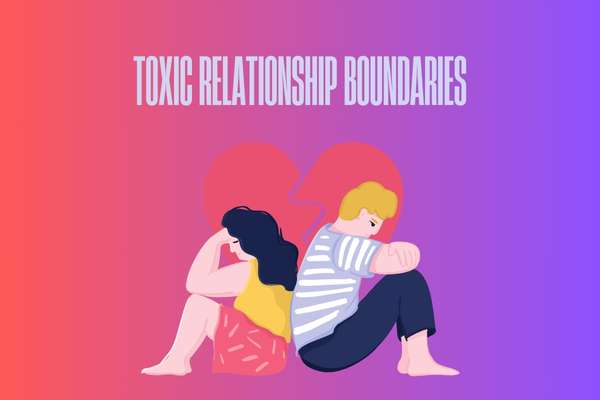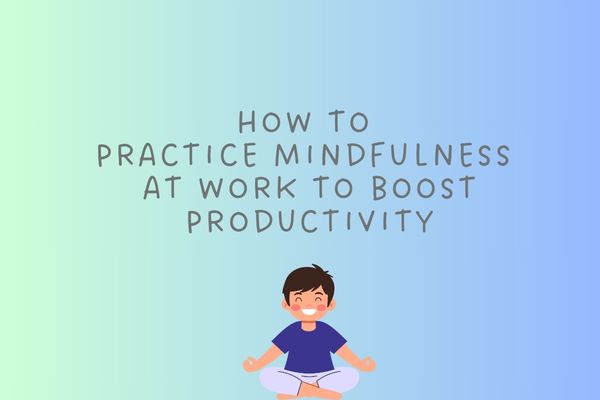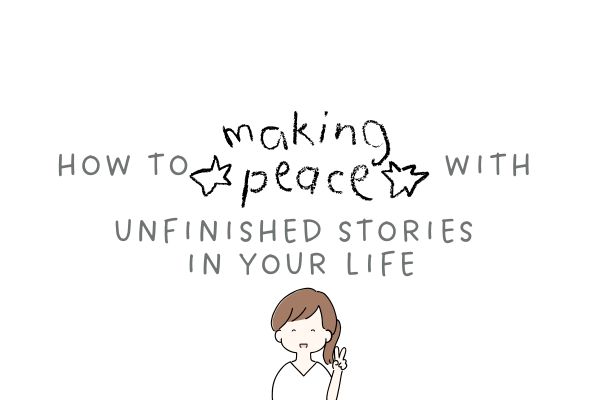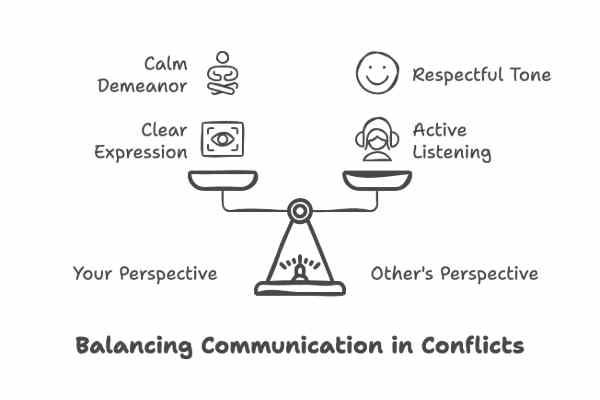Relationships, whether romantic, familial, or friendships, are an essential part of life. They help us grow, learn, and feel supported. However, not all relationships are healthy. Some relationships can become toxic, where negative dynamics outweigh the positive ones, causing emotional, mental, and even physical harm. Recognizing the signs of a toxic relationship and learning how to set boundaries is essential for maintaining your well-being. In this article, we’ll explore the signs of a toxic relationship and provide practical advice on how to set healthy boundaries to protect yourself.
What Is a Toxic Relationship?
A toxic relationship is one that consistently causes stress, unhappiness, or harm to one or both people involved. These relationships can involve manipulation, control, disrespect, or emotional abuse. While every relationship has ups and downs, toxic relationships are defined by patterns of negativity that outweigh the positive aspects of the relationship. Over time, these negative patterns can erode your self-esteem, well-being, and sense of safety.
Signs of a Toxic Relationship
Recognizing the signs of a toxic relationship is the first step toward making positive changes. Below are some common signs that a relationship may be toxic.
1. Constant Criticism or Belittling
In a toxic relationship, one partner may constantly criticize the other, putting them down, belittling their achievements, or questioning their worth. This criticism goes beyond constructive feedback and becomes a form of emotional abuse. Over time, this can significantly damage self-esteem and create feelings of inadequacy.
2. Manipulation and Gaslighting
Manipulation is a common tactic in toxic relationships. One partner may try to control or influence the other person’s thoughts, actions, or feelings. Gaslighting, a form of manipulation, occurs when one person denies reality or distorts facts to make the other person question their perception of events. This creates confusion and self-doubt.
3. Disrespect and Lack of Consideration
A lack of respect for boundaries, opinions, or personal space is a hallmark of a toxic relationship. If one person continuously dismisses the other’s feelings, ignores their needs, or disregards their wishes, it’s a sign that the relationship is unhealthy.
4. Constant Drama and Conflict
Toxic relationships are often marked by constant drama, conflict, and volatility. One or both people may be constantly engaged in arguments, with little resolution. The emotional energy spent on these conflicts can leave both partners feeling exhausted, drained, and emotionally depleted.
5. Control and Possessiveness
A toxic partner may try to control where you go, who you spend time with, what you wear, or how you spend your money. This possessiveness can extend to monitoring your phone, social media accounts, or even your daily activities. This control can feel suffocating and ultimately damage your sense of independence.
6. Emotional or Physical Abuse
Emotional and physical abuse are extreme signs of a toxic relationship. Emotional abuse may include name-calling, threats, or isolating you from friends and family. Physical abuse involves any form of violence, such as hitting, slapping, or other violent behavior. If you experience emotional or physical abuse, it is crucial to seek professional help and consider removing yourself from the situation.
7. Feeling Drained or Exhausted
Toxic relationships often leave you feeling emotionally drained or exhausted. If you find yourself feeling mentally or physically tired after spending time with someone, or if you feel a constant sense of anxiety, it’s a sign that the relationship is affecting your well-being. Healthy relationships should energize you, not drain you.
8. Disrespecting Boundaries
If your partner repeatedly crosses your personal boundaries, whether emotional, physical, or mental, it’s a red flag. Healthy relationships require mutual respect for boundaries. When these are consistently violated, it can cause significant harm to both individuals.
9. Lack of Support and Empathy
In a toxic relationship, one person may fail to offer support, empathy, or care for the other. Instead of providing comfort during difficult times, they may be indifferent, dismissive, or unsympathetic. Healthy relationships are built on mutual support, where both partners care for and nurture each other’s emotional needs.
10. Feeling Isolated
If you feel increasingly isolated from your friends, family, or social support system, it may be a sign that the relationship is toxic. A toxic partner may try to isolate you, either by controlling your social interactions or by causing conflicts that drive wedges between you and your loved ones.
Also check: Setting Healthy Boundaries Without Guilt
The Importance of Setting Boundaries
Boundaries are essential in any relationship, as they help maintain your sense of self and protect your emotional and physical well-being. Setting boundaries allows you to define what you will and will not tolerate, ensuring that your needs are met without compromising your values or sense of security. In toxic relationships, setting boundaries becomes even more crucial, as it helps you regain control and prevent further harm.
How to Set Boundaries in a Toxic Relationship
Setting boundaries in a toxic relationship can be challenging, especially if the other person is resistant or dismissive of your needs. However, learning to set clear and healthy boundaries is essential for protecting yourself and improving the dynamic. Here are some steps to help you set boundaries effectively:
1. Identify Your Needs
The first step in setting boundaries is identifying your needs and what you’re comfortable with. Take some time to reflect on your emotions and assess the situation. Ask yourself:
- What behaviors or actions make me feel uncomfortable?
- What am I willing to tolerate, and what is unacceptable?
- How do I want to feel in this relationship?
Once you understand your own needs, you can clearly define the boundaries that will help protect your emotional and physical well-being.
2. Communicate Clearly and Directly
Setting boundaries involves clear, direct communication. When talking to the other person, be assertive but respectful. Use “I” statements to express how you feel and what you need, such as:
- “I feel uncomfortable when you interrupt me.”
- “I need space to spend time with my friends.”
- “It’s important for me to have personal time to relax.”
Avoid apologizing for setting boundaries, as they are necessary for your health and well-being.
3. Be Consistent
Once you set boundaries, it’s important to be consistent in enforcing them. Toxic individuals may try to push or ignore your boundaries, so it’s crucial to stand firm. Consistency helps establish the importance of your boundaries and reinforces your self-worth.
4. Be Prepared for Pushback
In a toxic relationship, the other person may resist or become defensive when you set boundaries. They may try to manipulate you, guilt-trip you, or use emotional tactics to make you feel bad. It’s important to stay calm and assertive, reminding yourself that your boundaries are non-negotiable.
If necessary, be prepared to distance yourself or remove yourself from the situation if the other person continues to disrespect your boundaries.
5. Prioritize Self-Care
Setting boundaries is not just about saying “no” to others; it’s also about saying “yes” to yourself. Prioritize your own well-being and make self-care a routine part of your life. Engage in activities that help you relax, recharge, and feel empowered. By taking care of yourself, you build the emotional strength to maintain healthy boundaries.
6. Seek Support
Setting boundaries in a toxic relationship can be emotionally taxing, and it’s important to seek support from trusted friends, family, or a therapist. Talking to someone who understands your situation can provide validation, encouragement, and perspective as you navigate setting boundaries.
7. Know When to Walk Away
Sometimes, despite your best efforts, a toxic relationship may be beyond repair. If your boundaries are consistently violated and the other person refuses to change, it may be necessary to walk away for your own mental and emotional health. Remember that you deserve to be in relationships that are nurturing, respectful, and supportive.
Also check: The Key to Building Trust in Any Relationship
Conclusion
Recognizing the signs of a toxic relationship and learning to set boundaries is crucial for maintaining emotional and physical well-being. A toxic relationship can drain your energy, harm your self-esteem, and lead to long-term emotional damage. However, by identifying the unhealthy dynamics and setting firm, healthy boundaries, you can protect yourself from further harm and create space for growth and healing.
In some cases, setting boundaries may lead to a healthier relationship, while in others, it may be necessary to walk away. Ultimately, your well-being should always be your priority, and learning how to protect yourself from toxicity is a crucial step in creating a life filled with respect, love, and balance.






